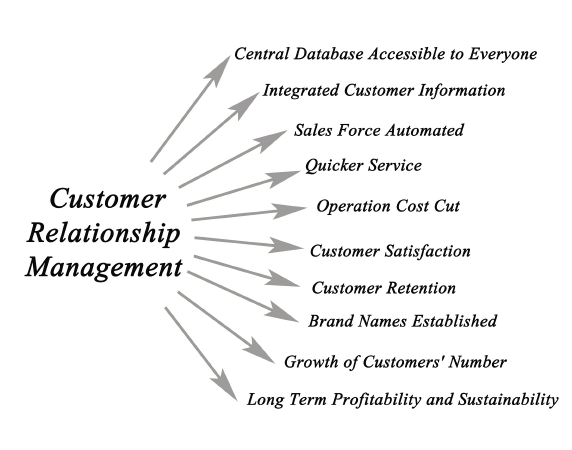Category: Field Service
The abundance, low cost, ease of use and ubiquity of smartphones/devices and mobile networks has brought revolutions among the different industries, in the ways they sell and operate. Earlier, mobile apps were only a means to make customers engage with and experience brands, mainly to market businesses. However, with the consumerization of IT, businesses not only aim at providing better customer experience through business-to-consumer apps (B2C), but are also focused at empowering their employees, making them more productive and exhibiting a smart work-environment through business-to-employee apps (B2E). Especially, businesses that are out there in the field.
Field service is one among those industries which is heavily impacted by this mobilization and consumerization. The industry has developed immensely over the last few years with several intelligent automating software, field service management apps, and technologies like wearables, video conferencing, IoT and more.
Increased sales with field service software deployment
“When it comes to appealing the ever-so-intelligent-humans, it’s no more about conning ads, fraudulent links, deceiving looks or false results; rather it’s all about intelligent tech offering them a better experience.”
Field service software has been by far the most disruptive tech that took the field service industry by storm. It brings home several advantages, like easy job scheduling, work order management, tasks automation, customer data access, transparent stock visibility, increased customer relationship management, decreased cost and time and more. And as far as sales is concerned, dealers across a variety of industries like, telecommunications, heating and air conditioning, medical, security and the like, testified that implementing a field service management system increased their equipment sales around an average of 12% in the very first year.
Take a note; it’s a 12% increase, just by using something that is already crucial to your business operations.
Not convinced?
See below for signs supporting how field service software increase sales.
Field service apps provide good customer service, thereby creating customer loyalty and better sales opportunity
According to the Harvard Business Review (HBR), businesses will experience a 100% customer retention rate when they are “very satisfied” with a business’ service. And a mere increase of 5% in customer retention and loyalty increases the business’ profit by 75%.
When your field service management software provides amazing service to customers, it could be one good reason why your sales has increased, because they are delighted and will continue to purchase new parts and services from you.
Anticipating a customer’s need buys his trust factor
“Who doesn’t like the feeling that the seller knows them, understands their needs and wants to offer them the best they can get?”
Ever noticed those online ads you see, set to display based on your interests and priorities? The sites recognize your preferences and present personalized collections to you even before you realize what you actually need. Who doesn’t like the feeling that the seller knows them, understands their needs and wants to offer them the best they can get?
Field service businesses can use the same principle to engage their customers by offering personalized services and make them feel that their needs are well-understood and taken care of. Technicians can use the field service management software to pull up the customer’s data or history, to evaluate and anticipate the deeper needs of their client. This detailed info about the client and their business help agents to provide personalized services and upsell intelligently, making the customers feel comfortable.
“Customers are likely to buy (and recommend to others) additional products and services that the agent will suggest, if they have trust that the agent onsite knows their best interests.”
Productive technicians tend to complete more jobs and additional customer visits
With advanced features of smart scheduling and dispatching (getting the right technicians at the right place, on time, with the right parts) in field service management software , technicians are able to get to more jobs than they would, without it. With complete customer info (including contact, location, and on-site equipment), proper directions to customer’s site, photos, videos, equipment service history, technical manuals and more details available right at the technician’s fingertips, they can always do an additional job or visit more customers almost every day.“By empowering field service agents through such smart field service management apps that increase their productivity (to up to 14%), you’re essentially multiplying your sales force and increasing their selling opportunity by up to 14%.”
Real-time access to real-time information leverage faster sale processes

Faster resolution times for customers

A mobile field service application that has parts and inventory management function, not only keeps track of what is on your truck but also has details of what’s on other trucks in your vicinity and warehouse. If a particular replacement part isn’t available, you can instantly order it from where it is available, through the app. Thus, the services can be completed faster than those businesses, which need to place a hundred calls before getting the work done for customers.
Customers tend to choose secure providers over others

It’s true that businesses do not often shortlist field service management software to increase their equipment sales. But as you saw above, those who have encouraged its use have definitely drawn more sales, revenue, and profit.
Stay up to date on what's new

Featured Blogs
Stay up to date on
what's new



Talk To Our Experts
Your field service technicians are the frontmen of your field operations. They are the ones who drive your services, making sure that your client’s problems are fixed well and on time. They basically keep your customers happy.
The least you can do is, to provide a happy work environment for them, and decrease employee turnover. Invest your time and money in them and you will see the results.
Also, as the demand for highly skilled field service agents is on the rise these days, hiring new agents would be difficult and expensive as well. Hence, you need to retain your already existing talented technicians.
Let’s see how field service management software can help in the retention of loyal employees:
Mobility goes a long way
Field service software is certain to make the jobs of your technicians much easier. And if it has an integrated mobile solution, then you can have your worker efficiency scales shooting up in no time. Here is how,
- Real time work schedule information – With mobile field service solutions, workers can get alerts, real-time information about work location, status, changes to their schedule etc., which saves them from the time and effort of having to get back with their providers, through a phone call or in person.
- Tracking inventory – Workers get to track the tools and equipment with the customers as well as with their providers easily, and manage their work accordingly.
- History of work order – Your field agents get to track the history of work orders related to a particular client, which gives them the confidence to approach the client with a new work that they would probably need, as they can always look back for references.
- Real-time status and work time updates – Mobile solutions enable your field agents to update the status of the work done by them, and also the duration of time they spent on the work, in real time, instead of calling or going back to the office in person.
- Access to instructions – Field agents can refer to instructions available in the mobile field service solutions, either as text or in the form of videos, whenever they get stuck. They can also check if there are other field technicians nearby, that might be available to give them a hand.
You can probably add a dozen more points to this list as you can see how much of an impact, mobile field service solutions can have on the work life of your field technicians. It makes their work easier by at least 50% undoubtedly.
This makes it possible for them to get jobs done faster, and take up more jobs and grow in terms of efficiency and capacity . Every employee would want to stick to a job that allows them to grow.
“Working with good colleagues, challenging job assignments and opportunities for career growth and development are among the top reasons for employees to stay with a company” – Raymond Noe, author of the book Employee Training and Development.
Training
Adopting field service software alone, might not be completely effective, unless coupled with adequate training. While it may seem to be an obvious thing to provide initial training for the new software, you also need to provide routine training on updates as well as new tools and repairs. It helps them stay up to date on the latest technology in field service, as well as on common product issues thereby helping them improve their skills. If necessary, you can have online training sessions, or demonstrations, or provide news on product issues, tools and new repair procedures through your mobile field service solution, so that your field agents can access it from anywhere and any time they want.
Appreciation
Work appreciation is sort of a given for retention of employees of any business. Similarly, your field service technicians need to be appreciated for their work regularly along with providing them with the necessary training and knowledge. This makes them feel worthy and happy, which reflects in their performance as well. In the end, your clients will also be happy with your field agents’ work, which is ultimately what you want.
Many companies across the field service industry have been using field service software for improving their services as well as employee retention rates. Talk to our field service management software experts to adopt the right solution for your business and retain your field agents.
Stay up to date on what's new

Featured Blogs
Stay up to date on
what's new



Talk To Our Experts
Thanks to latest technologies and the ever growing influx of mobile devices in almost every service industry, most maintenance companies are turning to enterprise mobile applications to manage work orders and maximize the efficiency of Field workers.
The use of mobile applications, help field workers complete work orders on-site and also lets managers track and schedule work efficiently, without any waste of time.
Let’s take a look at the 5 key features for any Mobile Field Service Application that maximize work efficiency:
1. Centralized Work Order Scheduling and Tracking
The ability to view and keep track of all your work orders from an easy to use and well-worked dashboard is one of the most sought after features any manager would crave for.
By having a centralized view of all work order statuses, and the progress made by field workers, the manager can stop worrying and focus on making fast and better decisions on the go.
The dispatchers can view the location of their techs through the map in real-time.
2. Hassle Free Field Worker Assigning
Minimizing scenarios where the field workers would not complete work orders and reject work orders is important to complete work orders on time. For this, there is a need to have an automated scheduling system to find out which vendor is apt for the current work order. This reduces the burden of dispatchers having to re-assign work orders and eliminates the need of making calls and contact attempts for field workers to figure out their availability.
The auto-assign feature will allocate the most apt field worker for the work order based on matching skill set, availability and a ranking system that takes into account various vendor attributes.
Having such a system is a great step forward to make the most out of your field workers.
3. Priority Wise Task Management and Notifications
Field workers are busy people, travel a lot and might not be always tuning into the app, to check if any task needs to be completed. As a result, it may cause a delay in work orders being seen and hence increase completion time.
It is important to clearly have a way to mark the emergency work orders as such and have a notification system with automatic status updates to-and-fro, where the field worker is prompted for every new work order and will have to accept/reject within a set time, so that the next field worker will be assigned the task if it is rejected by the first. The field worker will be reminded always about his daily tasks that needs to be completed in their dashboard and thus will never miss out on work anymore.
4. Capture Photos and Customer Signature
Having an image upload feature integrated is of utmost importance for field service applications. This lets the field worker upload pre and post work completion photos as proofs, which is also handy during work review, audits and conflicts.
A canvas feature with tenant signature capture is the easiest way to get the work approval from customers. Adding a star rating along with it, would be an icing on the cake and will motivate workers far better.
5.Generate Finance reports
Each time a work order is complete, you need your field workers to create invoices and start paying them for work completion. All these invoices should also be synced with the overall Finance module in your system. The app should sync the invoices generated into other third party finance modules or should have the ability to generate finance reports.
6. Bonus: Show your team some love
To conclude, a mobile field service application is all about timely notifications, easy to digest work schedules, intuitive and simple fill up forms and a centralized view to be always reminded of the big picture.
Moreover, field workers are humans too and would love to have a pat at the back after a good day at work. So instead of just showing them all that needs to be done. Show them the work orders they’ve completed, show them the awesome ratings they got for the completed work, show them some love. Being reminded about your accomplishments can be great fuel to completing even more!
Contact us to develop a mobile application that will benefit your business.
Stay up to date on what's new

Featured Blogs
Stay up to date on
what's new



Talk To Our Experts
The adoption of web and mobile based field service software is on the rise now, mainly because of organizations’ need to keep their field services streamlined and organized, and also to provide better services to customers with a proactive approach. Clubbed with the need to provide customers with necessary insights and information, in an effective manner, it becomes almost inevitable for companies to use field service automation software, more specifically mobile-based.
Success comes with the ‘right’ field service automation software
With the number of field service solutions available in the market, it is often difficult to choose the right one for your business. Here are some pointers for you to make a more informed decision:
- Understand your business model, know what your needs are – It is very important that you clearly understand your business model, your needs and the improvements you expect from the new system, before you approach the vendor. You need to be able to document your case as well, as a good field service vendor will ask you about your model and work towards understanding it better, in order to provide the best solution. By effectively communicating your objectives to the vendors, they will be able to explain how best their solution can help you. This lets you measure different vendor systems better and make a better-informed decision before finalizing.
- Understand the differences – As you get into the search for the right field service solution, it is very likely that you might get confused by the number of choices available through their marketing brochures and websites. The trick is to find the one that is closest to meeting your business requirements. How?
You will have to get up and close with all those solutions you have narrowed down on, after initial evaluation through the websites. As you spend some more time with them, ask questions and study them, the little weaknesses or issues with each system that may not be as apparent will be uncovered. For this purpose you may set out as a project team with several people, as other members of your team could come up with questions and findings that don’t occur to you. You also get to try out the systems, free of cost as well as paid. This way you will be able to learn more and see the different functionalities, helping you make a well-informed decision. - Learn the latest trends in field service technology – As you speak with your vendors for their solutions, you will most definitely come across a lot of new buzzwords and technical jargon that you may not be familiar with. When you do, do not ignore them or assume them to be things that are not important or things that might already be included in the system. The latest technology is what you want, and you don’t want to be using a system which is very likely to get obsolete soon. You need to be well aware of all the latest trends in field service software and make sure that the system you are looking to adopt, has them. You need to do sufficient research for this, and acquaint yourself with all the new trends. Software-as-a-Service models, web and mobile-based interfaces and the like, are some trends for you to start with.
“The latest technology is what you want, and you don’t want to be using a system which is very likely to get obsolete soon.”
- Involve your field agents – Your field agents are the ones who are going to be spending the most time with the software you choose, so involving them in the buying process is not only fair, but also necessary. Ask them about their needs and difficulties, and also their expectations from the new system. Such engagement, will not only reduce the resistance to the new system, but it will also make them more excited about using it. Get their feedback on the system, provide them with the time and training required for them to get used to the new system. Their opinions and ideas are very likely to be right and good, as they are the ones who are going to be using it.
“Ask your field agents about their needs and difficulties, and also their expectations from the new system.”
- Make sure there is prompt customer support – You are very likely to face issues with your solution or get stuck with it, a few years into using it. While there may be field agents who may know how to work around minor glitches, there also may be some who need extra help. Either way, you want to make sure that when they do need help, the field service management customer support, is easily available and affordable as well. Whatever mode it may be in, tech support is a must. You need to ask questions and analyze support details like is it a call centre? Do you get to talk to experts? Do you pay extra for support or is it included in the initial price?
The right field service automation solution will last a long time and will be totally worth the initial investment, if is properly implemented and maintained. Hence, a thorough and effective software selection and implementation process is required, if you want to realize all these business benefits and improve the efficiency of your field service. Talk to our field service automation software experts to know more about them and help you choose the perfect one for your business.
Stay up to date on what's new

Featured Blogs
Stay up to date on
what's new



Talk To Our Experts
In the race towards winning the hearts of customers and gaining maximum profits, business enterprises all over the world are struggling and trying all the latest technology to improve their performance. Business owners are facing many challenges, in terms of production, marketing, transportation and the like, along with the technological improvements.
Apart from these, they also need to deal with issues related to employees, like workload, physical space concerns, customers with specific and unique purchase requirements, logistics issues and the like.
All these adds to the complications that they are facing on a daily basis.
For companies in the field service industry specifically, there may be a lot more issues faced by the owners, as they need to address the concerns of their field staff as well.
You can imagine the level of frustration!
It has been this way for quite some time now. So what have the field service companies resorted to, so as to overcome their challenges and still manage to stay ahead in the competition?
The answer is custom field service software.
Custom Field Service Software To Improve Internal Operations
That’s right. Business owners are now using field service software so as to distribute their operational functions and thereby improve their performances. As is it designed to specifically meet the unique requirements of a business, it could be the perfect way to optimize internal operations.
However, an important thing to note is that, not all solutions are made equal and hence may not do the trick.
So how exactly is field service software helpful in improving internal operations?
The logic is clear
custom software development is developed uniquely for a business. Which means there is a lot of thought and understanding about the different functions and activities of the business going into it.
The solution thus developed, is aligned with the business processes and tasks in such a way that it helps in performing the assigned jobs well within the constraints of the overall goals and policies of the company. It also becomes a treasure trove of comprehensive information about the different products, services and even employees of the company, including how each of these elements interact with each other.
Field service software customized for a business, in the same way, has all of these benefits along with its ability to offer better flexibility and productivity. It makes work easier for everyone and thus improves effectiveness as well.
Now, with field service software, companies are starting to realize that the only way to stand ahead in the competition is to do or have something that their rivals don’t, or have not done yet.
It’s a pretty simple logic, and an evergreen business tactic that is being widely used by field service companies these days. For this reason, companies are now banking on need-driven applications for their organization, and are also hiring highly skilled and reputable developers to create custom field service software that suits their requirements.
Professional software developers can build even the most complex of applications, in a cost effective and scalable manner, to solve business challenges.
With the help of advanced and trending new technologies, guaranteed successful methods and the immense level of broad industry expertise that is worth its value in gold, developers are now equipping business enterprises with just what they need – advanced applications that give them the leading edge, that too, pretty fast and within the budget.
The one concern though, that companies have, about adopting such custom field service software is regarding its initial deployment cost. It may vary according to the different features of each custom application. But due to the advanced capabilities and the level of ubiquity that they provide through web and mobile devices, both of which lead to increased efficiency, the costs can be justified and even brought down.
Hence custom field service software are a worthy investment, that can help simplify processes as well as improve the efficiency of internal operations. All these ultimately lead to improved profits and performance of the entire organization.
Stay up to date on what's new

Featured Blogs
Stay up to date on
what's new



Talk To Our Experts
At this point, due to several years of rapid technological advancement, we can safely estimate that there are billions of connected devices, and that number is increasing with each passing day. The Internet of Things (IoT), has become so commonplace, that we hardly even notice how they impact our businesses. We have a number of “smart” devices: interconnected and operating with synergetic effect. This provides a whole range of new opportunities for business enterprises across industries.
In the field service industry, companies are extending and taking advantage of IoT. Whether it is at the customer’s house or place of business or shop floor, service companies are finding new ways to improve operational efficiency and achieve higher levels of customer satisfaction. By utilizing the data collected from various connected devices and sensors, these companies can deploy personnel more effectively and provide better services. Improved data — and data collection methods — are driving the move to a more proactive approach in their maintenance and repair services.
The interoperability between devices and platforms
Field service technicians need interconnected devices and applications to achieve the optimal business value potential. Thanks to the greater availability of network access, field service technicians can see bigger payoffs from the constant connectivity among service providers, customers and dispatchers. As a result, they are able to make more and better real-time decisions, but only if they are able to get the right information at the right times. It also helps when they have faster and easier ways to collaborate with their colleagues and providers more effectively and efficiently, empowering them to make better, more informed decisions at the right times. When that happens, they get to complete their job on-time the first time. Providers with on-the-cloud field service applications, thus have the competitive advantage when compared to those that use only on-premise solutions.
Everything is changing
The connected devices, platforms and applications are changing the way field agents work. We all know that by now. The major impact here is the value of the real-time information generated and captured from the various endpoint assets, which literally changes the way we manage field service workforce. But on the flipside, these connected endpoints carry with it a few challenges as well, like data security and big data analytics. With so many devices, there can be an escalation in the amount of unwanted information that can get collected in the process. It can be a daunting task for enterprises to filter big data and extract useful insights from them. Field service companies need to make sure that they have the technology and the mechanisms necessary to maintain data integrity and also to share with the technicians, data that is relevant and related to the technicians relation with the endpoint device.
Wearables
Although wearables are still in their initial adoption phase for a majority of us, new wearable devices are coming on the market every day. The challenge is to find wearables that can be used in the context of a company’s business applications.
Most technicians have a problem of relating contextually relevant information from wearable end-points that have not considered carefully enough how to connect the technician to their tasks at hand. For the same reason, getting alerts, and updates to those in the field via wearables still remain challenges to its adoption.
Nevertheless, wearables are definitely increasing in adoption in the field service industry, but there are certain concerns that need to be addressed soon, like security, form factor and most importantly, making sure that sharing of data is relevant and is based on the field service agent’s relationship with the particular endpoint device or asset. Those companies that address this problem and focus on providing contextually relevant information along with a friendly user interface, will stand to gain.
It is anticipated that 75% of field service organizations, in the next 3 years, will be providing smart wearables like watches, glasses and the like, to their field technicians. This only means that the rest of the applications necessary to facilitate and support this kind of growth need to gear themselves up.
Image credits: Techradar
Stay up to date on what's new

Featured Blogs
Stay up to date on
what's new



Talk To Our Experts
Field service is an industry which owes a large margin of its improvements to mobile applications. It has been leveraging mobile applications for a number of its functions and aspects for quite some time now and organizations have already replaced all of their heavy paper based processes with smart mobile applications. Most of them also continue to migrate their software as well as services and storage to the cloud, by which they allow the emails, photos, documents and other important information to be accessed from anywhere in the world.
According to a research by IDC, the world’s mobile workforce is likely to have grown to 1.3 billion this year. And the American region, including the United States, Canada and Latin America are likely to have seen an increase in their mobile workers from 182.5 million in 2010 to 212.1 million in 2015, with North America in the lead for the largest number of mobile workers at 75% of the total mobile workforce in 2010.
Such being the level at which mobile workers are increasing, there is also going to be an increase in the number of mobile devices connected to the internet, which according to Gartner is likely to be more than 30 billion in number by 2020, generating almost $2 trillion as an economic value worldwide.
That said, since mobile connectivity with the internet is rapidly increasing worldwide, it is about time that field service personnel also utilized mobile applications and start becoming a part of the mobile workforce.
As a matter of fact, the field service industry is one which has a million functions and opportunities to make them automated with mobile apps. It is indeed critical now for them to keep up with the changes and embrace mobility. Using a fully integrated field service management software has to be followed up with a mobile app as well. Read this blog to know the advantages
The field service industry actually needs mobile apps more than any industry
Field agents are almost always on the move, traveling from one job site to another. And they always need access to customer information, invoices, work order information, product or tools information and the like, most often in real-time. Since they go from one place of service to the next continuously, they might need information on their next work order and their next customer as well on the go.
A well-designed mobile app can help them simplify these processes and get things done in a more efficient and organized manner. Since it is cloud-based, it allows the field agents to pull up any information instantly from wherever they are. Hence, it avoids redundant phone calls to find the whereabouts of the agents or the job site and also any delay in information exchange.
It also helps to simplify communication between the field service agents, the providers, and the customers. Many a time, field service personnel have faced challenges in communicating with their team, especially when there are several agents traveling to a particular job site simultaneously. The right mobile app helps in effective communication and better coordination among these agents. This is especially true in case of companies that provide round-the-clock maintenance and inspection support. They definitely need a communication system that spans beyond regular telephonic calls, so that they don’t have to go through the ordeal of making a landline office phone call or enter passcodes and numbers every time that have to connect with someone. They need a system with advanced features that allow seamless communication between field service personnel.
It helps to eliminate human errors arising from manual data entry or paper-based data entry processes as well, which again adds to the effectiveness and efficiency of the organization as a whole.
Added benefits
Most field service mobile apps have many added benefits as well for the field agents, such as:
- Ability to access information related to work history and forthcoming jobs so that they can do the necessary preparations
- Ability to capture photos and signatures while they are on site
- Ability to go through and review their assigned tasks and accept or reject them according to their skills and expertise or time schedule
- An in-built navigation tool that will help them find the most efficient and appropriate route to their job site, thereby reducing travel time
- Ability to request for assistance or advice to other nearby co-workers, while they are on site and ensure that they fix the issue properly
Apart from these, there are a number of additional benefits that are designed to address the many problems that can arise in field service.
For example, there could be chances for last-minute plan or schedule changes, as technicians are always moving from one job to the next. Moreover, external factors like weather problems, traffic and power failure can also cause delay and even render the field agents from reaching the assigned location.
Field service mobile apps have advanced features to track the whereabouts of the workers in real-time and even determine the time required for him to complete a job he is currently at. Hence, the service providers can assign tasks based on the location, current job, skills and expertise of the technicians. Being cloud-based, all the team members can have access to the location of the supervisors or technicians or the customers from anywhere.
Enterprise Mobile Applications
According to a study by the Aberdeen group, “best-in-class” mobile apps are capable of completing about 1.5 times as much work on a mobile device as the industry average and also achieving an average of 40% increase in operational efficiency every year. As a matter of fact, the right mobile apps or the “best-in-class”, can do more than just mobilizing already existing enterprise software. A well-developed and a well-enforced mobile app strategy can actually act as a catalyst for improving coordination and effective communication, hastening the decision-making process and increase the overall operational efficiency of the organization as a whole.
On top of all that, as data gets collected from multiple sources and processes through mobile apps, there is also a chance of collating these and extracting greater, more useful information in the future.
Read more: Custom Enterprise Mobile App Development
Big data
Field service agents, as well as the providers have access to all information related to their jobs at one place. For the same reason, they have the opportunity to analyze and determine new trends and patterns and use it to make significant changes. For example, field agents assigned to follow up routine maintenance works on appliances and the like, can track the data collected from these works with the help of specialized mobile apps and use it to predict the next maintenance requirement. Hence, rather than fixing issues after they occur, field agents can utilize predictive analysis to be proactive in their approach.
On the whole, there are a number of unique features that mobile field service apps can provide to increase productivity and efficiency of the field service industry itself. It is high time that field service organizations (who have not already adopted mobile apps), encouraged mobility and started using feature-rich mobile applications to solve their day-to-day challenges.
Are you looking to adopt the perfect mobile solution for your field service business? Contact us to talk to our mobile application experts.
Stay up to date on what's new

Featured Blogs
Stay up to date on
what's new



Talk To Our Experts
The demand for field service management solutions has been on the rise for a very long time now and it has reached an all time high. According to a recent research by Gartner, the revenue from field service and workforce management systems comes to around $1.3 billion annually. The kinds of technology used for field management has been transforming the way field agents worked in their sites. Field service management solutions have gone a long way in increasing workforce productivity as well as improving collaboration among the field service employees. Now let’s see what other kinds of technologies are set to revolutionize the industry.
Internet of Things (IoT)
The Internet of Things is something that has had a huge impact in terms of productivity, as with this, you can practically access or even process and transmit information from pretty much any object. Machine to Machine communication (M2M) has been in use in the field service industry for quite some time now. With IoT, this system of sending and receiving signals from one device to another can expand and go beyond its boundaries to include a whole network of devices. According to a leading M2M solutions provider, “M2M is essentially about connecting and communicating with a thing, where a ‘thing’ may be a machine, a device or a sensor – basically anything that can send data whereas IoT goes beyond connecting computers with things. It represents things connecting with systems including business applications, ERP, and CRM systems, analytics systems, data warehouses and also people (workers, employees, customers)”. It basically means they have a much larger scope. Their potential is so vast, that it can range from enabling emergency service alerts in the case of search and rescue operations or even helping energy companies detect problems early on using alerts and predictive analysis. For example, a crack in a water pipe or a waste pipe can be identified using sensors and can reported to the control center with the help of alerts. Through this, the technician can repair the damage before it causes any severe problems. Similarly, IoT with cloud-based services and remote machines can send location information, status details as well as other such condition based service information., that can influence the world of field services greatly.
Augmented reality and wearables
Augmented reality is one technology that will definitely have a huge impact on the way field service agents work. When leveraged with wearable technology, workers get to actually experience real world situations and issues with the help of computer-generated sensory inputs such as sounds, videos, graphics etc. For example, a field worker can analyze the equipment or areas he is working on by augmented reality enabled glasses and identify the exact cause of the issue and remedy for it too. Hence, it becomes much easier for him to make the repairs in reality. Thus, augmented reality and wearables are actually 2 faces of a single coin, as one is supplemented by the other. They streamline field service management, introduce new and improved ways of working and interacting with people through Smart Watches, mobile phones, Smart Glasses etc.
3D Printing
This is also a technology that has been in the industry for several years now. It greatly helps field service managers and agents generate parts or equipments that they might need in their work in 3D. For example, if a repair requires a particular equipment or tool or part that is not available with you at the moment or is low on stock, you might need to put off your service visit for days or weeks. With 3D printing, you are relieved of such an issue. It provides an efficient system for parts management. It helps you create anything on the spot, with the help of a 3D printer, provided you have the required diagrammatics for it. According to Gartner, over the next three years, 3D printing is likely to reach a turning point, as the demand for low-cost printing devices is increasing rapidly and its use in industries is also significantly high.
Field service organizations are already using most of these technologies in their daily operations. As a part of our ever dynamic business environment, it is also important to look out for newer technologies and be open to technological changes. Since all of these technologies contribute to the productivity and efficiency of organizations, you need to make use of them in the best possible way. Technological disruption is bound to happen, so might as well make the most of it.
Stay up to date on what's new

Featured Blogs
Stay up to date on
what's new



Talk To Our Experts
Field service management software is becoming increasingly popular these days. With it’s advanced features of scheduling and dispatching and of course integration with mobile devices, there is no reason why managers like you would prefer anything else.
Now, mobile integration is one of the main advantages of field service management software. Without it, the whole purpose of the software to make field service management easier and faster for everyone, will not be properly served. Even a system with features like scheduling and reporting, will not prove to be very useful in terms of increased efficiency, if it’s not mobile integrated.
So, what exactly is the need for mobile integration in field service management software?
In the earlier developed, on-premise field service management systems, there was centralization of information and reporting but it required the field agents to re-enter the information they collected from the field through paper documents. Moreover, apart from a mobile phone to call, there was practically no way the managers could reach the agents and vice versa.
All these problems can be solved with mobile integration of field service management software. Here are some other advantages of mobile integration:
Back-end Service Knowledge Access
Technicians or field agents while at their work can look up manuals or diagrams available in the backend through the mobile integrated field service management solution and determine the best procedures for repair or even determine the parts or tools required for the repair. Even though your field agents may be experts, they could use tools and techniques that would help them complete their job in a better way. They could also make use of the history of repairs or warranty information etc. of a particular customer’s asset available with the solution to better help in their work. Moreover, they can access customer accounts for billing functions etc.
Transparency and Communication
Gone are the days when you did not know where your field agents are or what they are working on. With the help of mobile integrated field service management systems, you will be able to get real-time job updates and even location information. They also enable real-time communication between the field agents and the managers so you are always ready with information for your customers, as and when they call.
Efficient Data Collection and Accounting
As mentioned before, field service management systems that were not mobile integrated required the field agents to enter work related information twice. Such redundancy of data led to wastage of time and effort thus decreasing productivity. Mobile integration enables the field agents to enter data directly onto the system thereby saving time. Moreover, some solutions offer advanced features like payment processing which allow your agents to collect payments too. All of these digital records further enable smoother accounting and auditing.
Real-Time Scheduling
Routing and scheduling features are the main highlights of any field service management system. But when you have them integrated with a mobile device, you can allow your agents to view their schedules while they are at their work so that they can plan their work accordingly. Based on the location information of an agent, the routing feature helps to plan an optimized route between all the sites that are pending for a particular agent. That way,work becomes systematic and productivity is increased as more work orders can be attended to per day.
All these features make mobile integration for field service management solutions inevitable if you want to increase productivity. Your field agents are the representatives of your company and they reflect the quality of your service. Hence, if they perform better, your customers will be more satisfied. In order to stand ahead in satisfying your customers, you need to have field service management software with all the mentioned features and mobile integration.
Contact us to develop a field service management solution just for your Business.
Stay up to date on what's new

Featured Blogs
Stay up to date on
what's new


























































